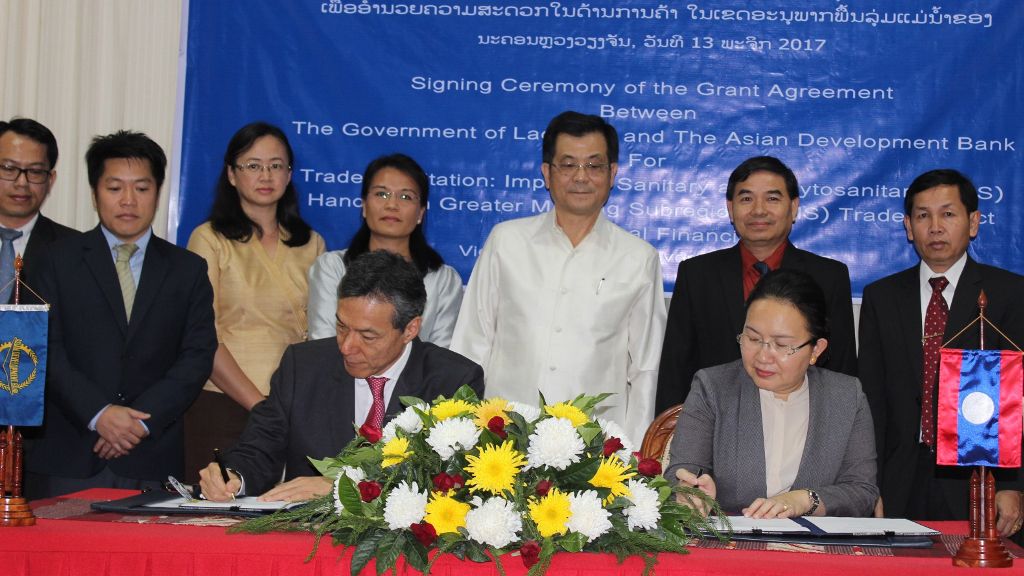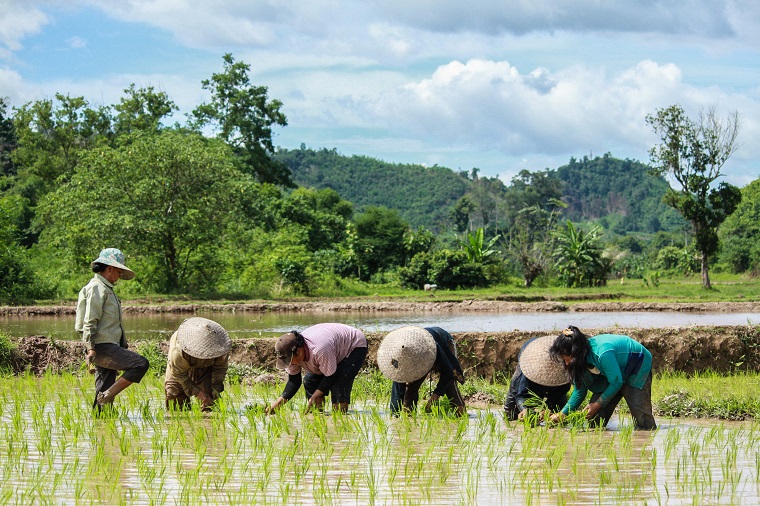Five Reasons Air Travel Is Booming in the Greater Mekong Subregion
The Greater Mekong Subregion is one of the fast-growing markets for air transport services today.
The Greater Mekong Subregion is one of the fast-growing markets for air transport services today.

Lao PDR Deputy Minister of Finance Thipphakone Chanthavongsa (seated, right) and ADB Country Director for the Lao PDR (seated, left) Yasushi Negishi signed the additional grant agreement in Vientiane. Deputy Minister of Agriculture and Forestry Phouangparisak Pravongviengkham (standing, second from right) also attended the signing ceremony.
VIENTIANE, LAO PEOPLE’S DEMOCRATIC REPUBLIC (20 November 2017) —The Asian Development Bank and the Government of the Lao People’s Democratic Republic signed an agreement on 13 November for a $10 million grant as additional financing for a project that will enhance sanitary and phytosanitary capacity and improve food safety as well as plant and animal safety in the country.
The Greater Mekong Subregion has significant potential to develop renewal energy, but it also faces major challenges.
Scientists are urgently calling for alternative treatments to a malaria “superbug” that now affects four countries in the Greater Mekong Subregion.
The Lao People’s Democratic Republic is operating its first dry port in Savannakhet province, where it is strategically positioned along the Greater Mekong Subregion East-West Economic Corridor, at the mid-point between the nearest Vietnamese seaport of Danang, and Thai ports in Bangkok and Laem Chabang.
VIENTIANE, LAO PEOPLE’S DEMOCRATIC REPUBLIC (4 October 2017) — The Asian Development Bank’s Board of Directors has approved a $10 million grant to the Lao People’s Democratic Republic as additional financing to scale up efforts to improve food safety and ensure plant and animal health, as part of an initiative to improve sanitary and phytosanitary capacity in the country.

Rural communities in the Greater Mekong Subregion are vulnerable to climate-related disasters, such as floods, droughts, and storms. Risk financing can help people protect their livelihood and productive assets better through a combination of risk retention, risk sharing, and risk transfer mechanisms. Photo: ADB.
Risk financing can help at-risk communities better cope with the economic costs of natural disasters and extreme weather.
Vulnerable towns in Cambodia, Lao People’s Democratic Republic, and Viet Nam are using “green infrastructure” to stave off the impacts of climate change.
Five countries in the Greater Mekong Subregion are receiving additional support to eliminate malaria.
The best tourism startups will converge at the 2017 Mekong Tourism Forum on June 6 to pitch their business plans to venture capitalists and industry experts.